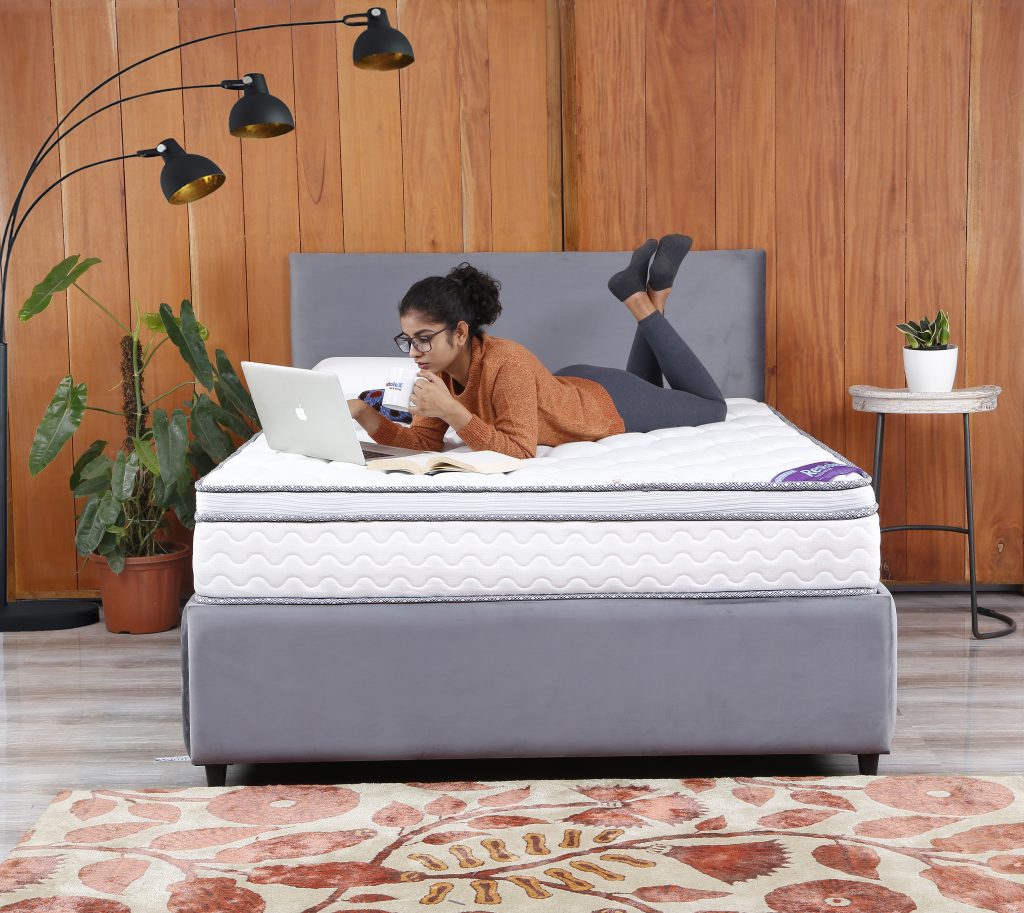Don’t Let Studying in Bed Sabotage Your Sleep: Tips for Maintaining Healthy Sleep Habits
In today’s world, many of us juggle multiple responsibilities, including studying, work, and personal life. For students and professionals alike, studying in bed can seem like a convenient option—one that combines comfort with productivity. However, this seemingly harmless habit can have a significant impact on your sleep quality. If you’re struggling with sleep issues and find yourself studying or working from your bed, it might be time to reconsider your approach. Here’s why studying in bed can sabotage your sleep and how to create a more sleep-friendly study environment.

The Impact of Studying in Bed on Sleep Quality
1. Associating Your Bed with Wakefulness
Your brain associates your bed with sleep, relaxation, and rest. When you use your bed for activities like studying or working, you create conflicting signals. Instead of associating your bed with restful sleep, your brain starts to link it with alertness and stress. This can make it harder to unwind and fall asleep when you actually go to bed.
A study published in Sleep Medicine Reviews found that associating the bed with activities other than sleep can lead to increased sleep onset latency, or the time it takes to fall asleep. This association can disrupt your sleep patterns and lead to chronic sleep issues.
2. Disrupted Sleep Environment
Studying in bed often involves the use of electronics like laptops, tablets, or phones. The blue light emitted by these devices can interfere with your body’s production of melatonin, a hormone that regulates sleep. Blue light exposure before bedtime has been linked to delayed sleep onset and poorer sleep quality.
The National Sleep Foundation reports that exposure to blue light in the evening can disrupt circadian rhythms, making it difficult to fall asleep and achieve restorative sleep.
3. Physical Discomfort and Poor Posture
Studying or working from bed often means adopting awkward or uncomfortable positions. Poor posture can lead to physical discomfort, such as back pain or neck strain, which can make it harder to relax and fall asleep. Prolonged periods of sitting or lying in poor positions can contribute to chronic pain and discomfort.
A study in the Journal of Occupational Health highlights that poor posture while working can lead to musculoskeletal problems, which can impact your overall well-being and sleep quality.
Tips for Creating a Sleep-Friendly Study Environment
1. Establish a Dedicated Study Area
Create a separate study space that’s distinct from your sleeping environment. This can be a desk or table in another room or a designated study nook. By keeping work and study activities separate from your bed, you reinforce the association between your bed and sleep.
2. Limit Screen Time Before Bed
To minimize the impact of blue light on your sleep, aim to finish studying or working on electronic devices at least an hour before bed. Consider using blue light filters on your devices if you must use them close to bedtime.
3. Maintain Good Posture
If you need to study at your desk, ensure you have a comfortable chair and desk setup that supports good posture. This helps prevent physical discomfort and promotes a better quality of sleep. Ergonomic furniture can make a significant difference in your comfort and overall well-being.
4. Create a Relaxing Bedtime Routine
Develop a pre-sleep routine that helps signal to your body that it’s time to wind down. This could include activities like reading a book, taking a warm bath, or practicing relaxation techniques. Avoid stimulating activities and bright screens during this time.
5. Keep Your Sleep Environment Comfortable
Ensure your bedroom is conducive to sleep. Keep the room dark, cool, and quiet, and invest in a comfortable mattress and pillows. A sleep-friendly environment promotes better rest and helps you fall asleep more easily.
6. Practice Time Management
Efficient time management can help reduce the need for late-night studying or working. Create a study schedule that allows you to complete tasks during the day, giving you ample time to unwind before bed.
Conclusion: Prioritize Your Sleep for Better Performance
Studying or working in bed might seem like a convenient choice, but it can undermine your sleep quality and overall well-being. By establishing a separate study area, limiting screen time before bed, and maintaining good posture, you can protect your sleep and improve your overall health. Remember, quality sleep is essential for cognitive function, mood regulation, and physical health. Prioritizing your sleep by creating a sleep-friendly environment and practicing good habits will ultimately enhance your productivity and performance in all areas of your life.
For more tips on improving your sleep environment and habits, visit Restolex. We offer a range of mattress designed to help you achieve the best possible rest, ensuring you wake up refreshed and ready to tackle your day.
Newsletter Sign Up
Join our community to receive exclusive updates, sleep tips, and special offers directly in your inbox. Stay informed and be the first to know about our latest products and promotions.

Contact Us
- 9/1, Ashokapuram, Industrial Suburb, Yeshwanthpur, Bengaluru-560022, India
-
care@restolex.com
Orders@restolex.com
Support@restolex.com -
+91-8750054466
+91-8123018558
